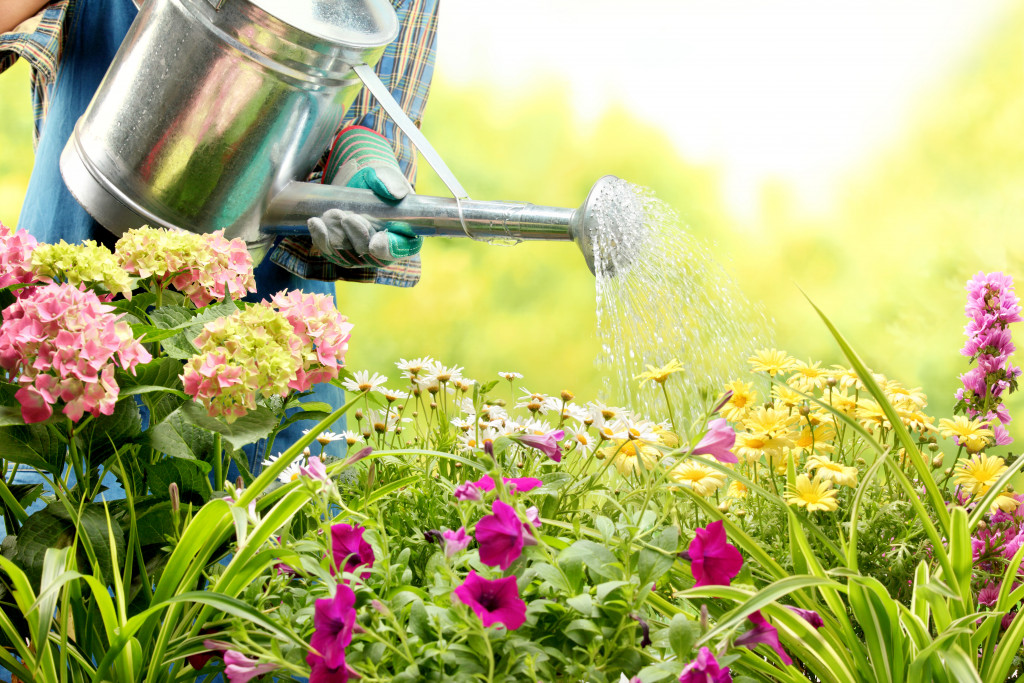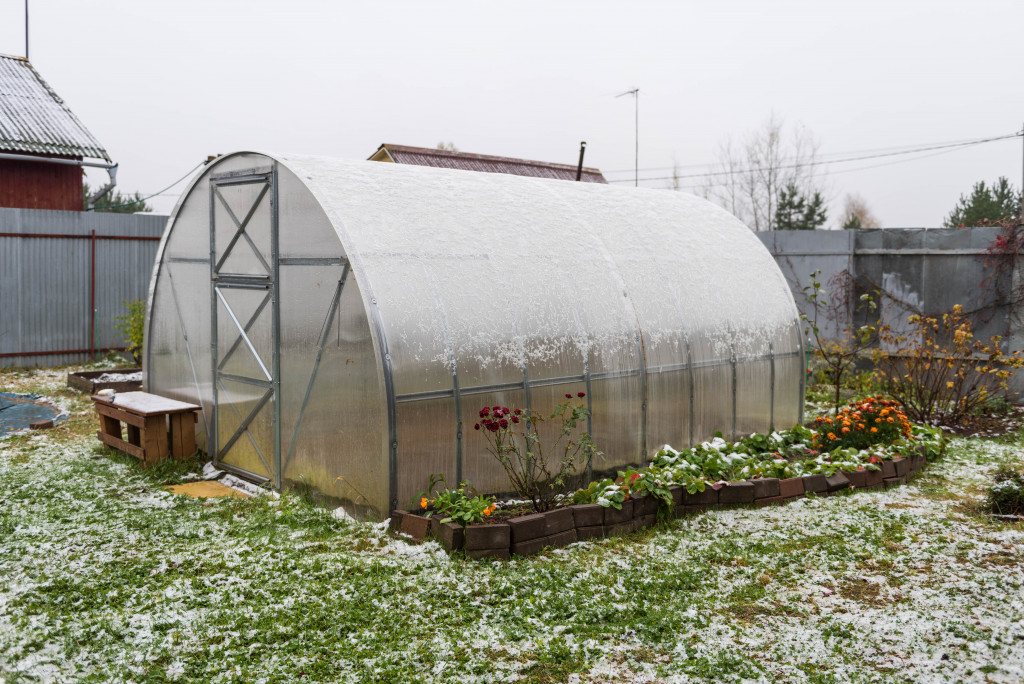- Monitor soil health and check pH levels to ensure plants get nutrients.
- Control pests and diseases using natural solutions, such as insecticidal soaps or neem oil.
- Prune plants regularly to promote healthy growth and increase flower production.
- Water wisely, use mulch to conserve moisture, and insulate roots from cold weather.
- Hire a professional gardener for convenience and expert advice on maintaining a green home all year round.
Having a garden in your home is an excellent way to keep your home green all year round. Gardens are beneficial for reducing air pollution, providing green space, and promoting wildlife. Studies have shown that having a garden can lower the temperature of a house by up to two degrees – an essential factor in keeping your home cool during hot summer months.
Gardens also help reduce air pollution by capturing harmful emissions from motor vehicles and factories. Plants act as filters, absorbing pollutants like carbon dioxide and releasing oxygen instead. Studies have found that plants can reduce the concentration of ultrafine particles (UFPs) in the air by up to 43%. This is especially important for cities with high populations and traffic congestion, where UFP levels can be as much as three times higher than those in rural areas.
However, having a healthy garden requires maintenance, one that is tailored to the region and season. To ensure your garden thrives year-round, there are some simple steps you can take:
Regular Gardening Tasks

Gardens are essential in keeping our homes green but require regular maintenance. Regular gardening tasks will ensure your garden remains healthy and vibrant all year round. Everyday chores include the following:
Monitor Soil Health
A crucial part of gardening is understanding the soil’s needs. Soil health affects every aspect of growing plants – from their growth rate to their susceptibility to pests and diseases. One way to monitor soil quality is by testing its pH– a measure of acidity or alkalinity in the soil. It’s essential to test the pH regularly as plants prefer different soil conditions depending on their type. You can also try the nutrient content of your soil by using a home testing kit or sending it away for lab analysis. Performing tests regularly will ensure your plants get the nutrients they need to grow healthy and strong throughout the year.
Control Pests & Diseases
Pests and diseases can wreak havoc on gardens if left unchecked. Common garden pests include aphids, caterpillars, slugs, snails, and mites, while common plant diseases often come in fungal forms, such as powdery mildew or rust. Thankfully, plenty of natural solutions are available for controlling these unwanted visitors without using chemical pesticides or fungicides that can harm wildlife and pollute waterways.
Prune Plants Regularly
Pruning is one of the most essential gardening tasks as it helps improve air circulation around plants and helps reduce moisture-related diseases such as powdery mildew. It also encourages new growth, increasing flower production on certain flowering plants like roses or lavender bushes. Pruning should be done at least once per season using clean, sharp pruners so you don’t spread any disease between plants while trimming them back.
Water Wisely
Watering your garden correctly is essential for healthy growth, especially during summer when water levels become low due to higher temperatures and increased evaporation rates. Check rainfall before watering your garden, as too much water can cause root rot, whereas too little water stunts plant growth. To conserve water, use mulch around beds so moisture doesn’t evaporate quickly into the air, and use drip irrigation systems with timers which are especially effective for more extensive gardens that need consistent watering throughout the season.
Prepare for Winter

Preparing your garden for winter is essential in ensuring it remains healthy and vibrant during the colder months. Winter can bring harsher weather conditions, such as freezing temperatures, snow, ice, and wind which can damage plants if not considered.
Building a deep winter greenhouse is one of the best ways to protect your plants from cold weather. This helps keep the temperature warm and protects them from frost damage. It also helps conserve water- heat generated by the greenhouse will prevent moisture from evaporating too quickly into the air. If you cannot build a greenhouse, placing bubble wrap around vulnerable plants can help insulate them against frost damage, allowing them to last longer throughout the winter.
Another way to protect your garden during winter is by pruning and cutting back any dead or diseased branches or foliage on shrubs and trees in autumn before the cold season arrives. This reduces potential pest infestation and diseases that may spread due to weakened plant immunity. During winter, mulching around beds is also beneficial as it prevents soil erosion and provides root insulation.
Hire a Professional Gardener
Keeping up with regular gardening tasks can be difficult, especially for those with a busy lifestyle. Hiring a professional gardener is often the most convenient and cost-effective solution, as they have the knowledge, experience, and expertise to ensure your garden stays healthy year-round. Professional gardeners can also advise on plant selection, pruning techniques, soil health testing, pest control measures, and winter preparation tips.
Final Thoughts
Keeping your home green all year round requires commitment and dedication. Regular gardening tasks, such as monitoring soil health, controlling pests and diseases, pruning plants, watering wisely, and preparing for winter, should be taken seriously to ensure the longevity of your garden. Hiring a professional gardener is an excellent solution if you don’t have the time or energy to do it yourself. No matter which routes you take, ensuring your home remains green all year round will benefit you and the environment!
